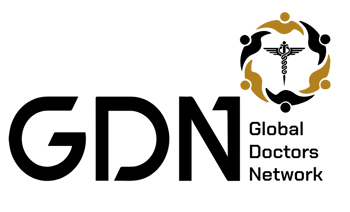
CREST Forms
CREST stands for Certificate of Readiness to Enter Specialty Training. If you complete Foundation Training in the UK then you will receive a FPCC (Foundation Programme Completion Certificate) instead and therefore do not need to complete a CREST form as well.
Who needs a CREST form?
You will need a CREST form if you are planning to apply for a formal training programme at ST1 level in the UK.
You do not need a CREST form if you are planning to join the UK Foundation Programme or complete a standalone FY2 job.
CREST Checklist
It can only be completed and signed by a consultant who you have worked with over a period of at least 3 months whole-time equivalent within the preceding 3 years prior to the training application. Clinical attachments and observer posts cannot be used to complete your CREST form.
It can be completed by any consultant on the specialist register in the UK who has completed a CCT/CESR pathway. It can also be signed by a consultant registered with a medical authority overseas however further evidence is required by the GMC to show this and it must be translated into English.
It cannot be completed by someone who you know personally e.g. are a relation to you or husband/wife or child.
You need to have portfolio evidence of all the competencies on the CREST form and be able to demonstrate these to the consultant completing the form. All the sections of the form must be completed including the sections to be completed by the consultant so check these before submitting the form with your application.
The form changes annually so double check the correct form is being uploaded prior to submitting as an incorrect form may invalidate your application.
The CREST form (2024)
There are 3 sections with subsections in each:
An accountable, capable and compassionate doctor
Clinical assessment - need assessments to be able to show that you can competently assess a variety of presentations
Clinical prioritisation - need assessments and colleague feedback to show that you can manage a patient/job list and prioritise patients in order of clinical importance
Holistic planning - need assessments to show you can formulate a management plan for the patient which takes into account physical needs as well as psychological and social needs
Communication and care - need assessments, colleague and patient feedback to show that you listen to patients and colleagues, can communicate clearly and give clear advice and guidance to patients and colleagues
Continuity of care - need to be able to show that you contribute to safe ongoing care over a 24 hour period e.g. completed a variety of shift types
A valuable member of healthcare workforce
Sharing the vision - need colleague feedback to show you are a confident member of the multidisciplinary team and can deliver high quality patient care
Fitness to practise - demonstrate an interest in maintaining own personal health and wellbeing
Upholding values - demonstrate that you are a responsible employee and speak up if needed if others do not act in an appropriate manner
Quality Improvement - demonstrate evidence of involvement in quality improvement in your department
Teaching the Teacher - demonstrate evidence of teaching and presenting to peers
A professional, responsible for their own practice and portfolio development
Ethics and law - demonstrate that you are complying with the need to maintain a professional portfolio of evidence
Continuing professional development - demonstrate that you are keeping up to date with new guidelines, reflecting on your experiences and identifying areas of learning which you then complete
Understanding medicine - demonstrate an appreciation of the breadth of medicine and formulate a career plan
You can use your portfolio to demonstrate all of these competencies so keep a log of the evidence you are gathering so you can identify where gaps may be present. For the clinical assessments you will need a breadth of assessment types and cases to be able to show diversity and a wider skill set.


